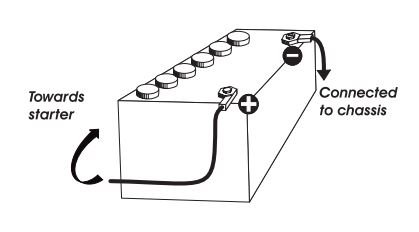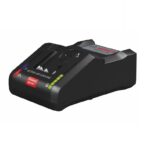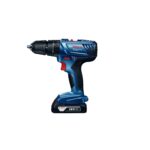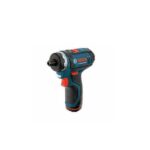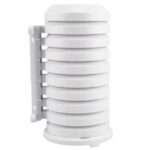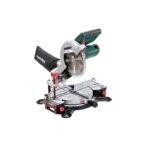PRESIDENT TXUS093 Thomas FCC AM/FM CB
Radio User Manual
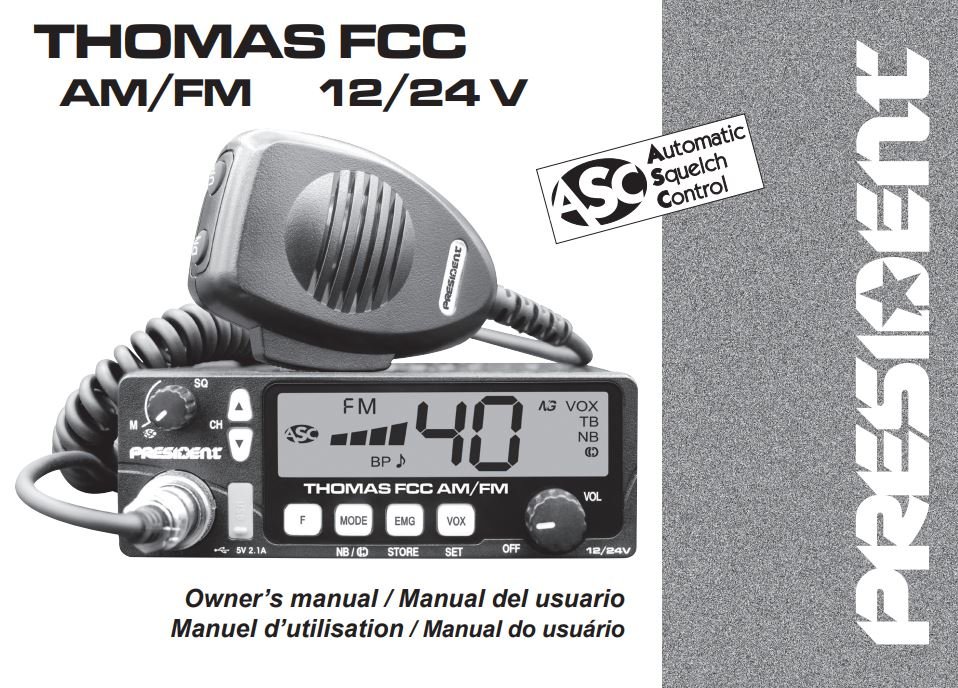
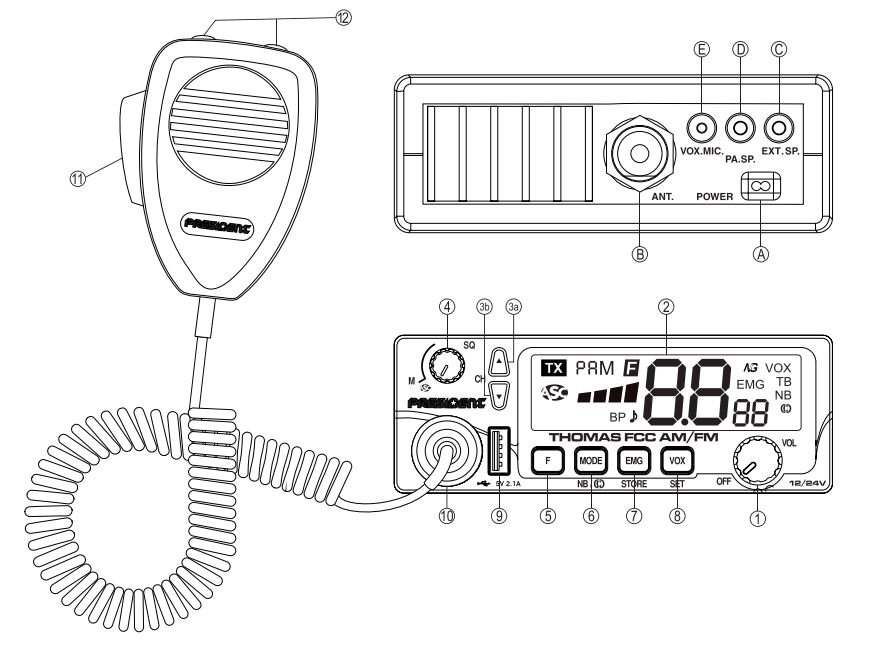
⚠️WARNING: This product can expose you to chemicals including Lead, which is known to the State of California to cause cancer and birth defects or other reproductive harm. For more information go to www.P65Warnings.ca.gov.
AVERTISSEMENT : Ce produit peut vous exposer à des agents chimiques, y compris le plomb, identifiés par l’État de Californie comme pouvant causer le cancer et des malformations congénitales ou autres effets nocifs sur la reproduction. Pour de plus amples informations, prière de consulter le site www.P65Warnings.ca.gov.
WARNING ! Before using, be careful never to transmit without first having connected the antenna (connection “B” situated on the back panel of the equipment) or without having set the SWR (Standing Wave Ratio) ! Failure to do so may result in destruction of the power amplifier, which is not covered by the warranty. |
The warranty of this transceiver is valid only in the country of purchase.
Welcome to the world of the new generation of CB radios. The new PRESIDENT range gives you access to top performance CB equipment. With the use of up-to-date technology, which guarantees unprecedented quality, your PRESIDENT THOMAS FCC AM/FM is a new step in personal communication and is the surest choice for the most demanding of professional CB radio users. To ensure that you make the most of all its capacities, we advise you to read carefully this manual before installing and using your PRESIDENT THOMAS FCC AM/FM.
INSTALLATION
1) WHERE AND HOW TO MOUNT YOUR MOBILE CB RADIO
- You should choose the most appropriate setting from a simple and practical point of view.
- Your CB radio should not interfere with the driver or the passengers.
- Remember to provide for the passing and protection of different wires (e.g. power, antenna, accessory cabling) so that they do not in any way interfere with the driving of the vehicle.

MOUNTING DIAGRAM 
- To install your equipment, use the cradle (1) and the self-tapping screws [2] provided (drilling diameter 3.2 mm). Take care not to damage the vehicle’s electrical system while drilling the dash board.
- Do not forget to insert the rubber joints (3) between the CB and its support as these have a shock-absorbing effect which permits gentle orientation and tightening of the set.
- Choose where to place the microphone support and remember that the microphone cord must stretch to the driver without interfering with the controls of the vehicle.
Note: As the transceiver has a frontal microphone socket, it can be set into the dash board. In this case, you will need to add an external loud speaker to improve the sound quality of communications (connector EXT.SP situated on the back panel: C). Ask your dealer for advice on mounting your CB radio.
2) ANTENNA INSTALLATION
- Choosing your antenna
– For CB radios, the longer the antenna, the better its results. Your dealer will be able to help you with your choice of antenna. - Mobile antenna
– Must be fixed to the vehicle where there is a maximum of metallic surface (ground plane), away from windscreen mountings.
– If you already have a radio-telephone antenna installed, the CB antenna should be higher than this.
– There are two types of antenna: pre regulated which should be used on a good ground plane (e.g. car roof or lid of the boot), and adjustable which offer a much larger range and can be used on a smaller ground plane (see § 5 page 7, ADJUSTMENT OF SWR).
– For an antenna which must be fixed by drilling, you will need a good contact between the antenna and the ground plane. To obtain this, you should lightly scratch the surface where the screw and tightening star are to be placed.
– Be careful not to pinch or flatten the coaxial cable (as this runs the risk of break down and/or short-circuiting).
– Connect the antenna (B). OUTPUT RADIUS PATTERN
OUTPUT RADIUS PATTERN - Fixed antenna
– A fixed antenna should be installed in a clear space as possible. If it is fixed to a mast, it will perhaps be necessary to stay it, according to the laws in force (you should seek professional advice). All PRESIDENT antennas and accessories are designed to give maximum efficiency to each CB radio within the range.
3) POWER CONNECTION
Your PRESIDENT THOMAS FCC AM/FM is protected against an inversion of polarities. However, before switching it on, you are advised to check all the connections. Your equipment must be supplied with a continued current of 12 or 24 volts (A). Today, most cars and lorries are negative earth. You can check this by making sure that the negative terminal of the battery is connected either to the engine block or to the chassis. If this is not the case, you should consult your dealer.
- Check that the battery is of 12 or 24 volts.
- Locate the positive and negative terminals of the battery (+ is red and – is black). Should it be necessary to lengthen the power cable, you should use the same or a superior type of cable.
- It is necessary to connect your CB to a permanent (+) and (-). We advise you to connect the power cable directly to the battery (as the connection of the CB cable to the wiring of the car-radio or other parts of the electrical circuit may, in some cases, increase the likelihood of interference).
- Connect the red wire (+) to the positive terminal of the battery and the black (-) wire to the negative terminal of the battery.
- Connect the power cable to your CB radio. WARNING: Never replace the original fuse by one of a different value.

4) BASIC OPERATIONS TO BE CARRIED OUT BEFORE USING YOUR SET FOR THE FIRST TIME (without transmitting and without using the «push-to-talk» switch on the microphone)
- Connect the microphone,
- Check the antenna connections,
- Turn the set on by turning the volume knob VOL (1) clockwise,
- Turn the squelch SQ knob (4) to minimum (M position),
- Adjust the volume to a comfortable level,
- Go to Channel 20 using either 🔼/🔽 keys (3) or the UP/DN knobs (12).
5) ADJUSTMENT OF SWR (Standing wave ratio)
WARNING: This must be carried out when you use your CB radio for the first time (and whenever you re-position your antenna). The adjustment must be carried out in an obstacle-free area.
* Adjustment with external SWR-meter (e.g. TOS-1 PRESIDENT)
- To connect the SWR meter
– Connect the SWR meter between the CB radio and the antenna as close as possible to the CB (use a maximum of 40 cm cable, type President CA-2C). - To adjust the SWR meter
– Set the CB on channel 20.
– Put the switch on the SWR-meter to position FWD (calibration).
– Press the «push-to-talk» switch on the microphone to transmit.
– Bring the index needle to 🔽 by using the calibration key.
– Change the switch to position REF (reading of the SWR level). The reading on the Meter should be as near as possible to 1. If this is not the case, re-adjust your antenna to obtain a reading as close as possible to 1. (An SWR reading between 1 and 1.8 is acceptable).
– It will be necessary to re-calibrate the SWR meter after each adjustment of the antenna.
WARNING: In order to avoid any losses and attenuations in cables used for connection between the radio and its accessories, PRESIDENT recommends to use a cable with a length less than 9.84 feet. Your CB is now ready for use.
HOW TO USE YOUR CB
1) ON/OFF – VOLUME
- To turn the set on, turn the VOL knob (1) clockwise. If the KEY BEEP function is activated, 4 tones sound when you turn the CB radio on. See § KEY BEEP page 10. Display briefly shows the microphone type (see § MICROPHONE TYPE page 10). See FUNCTIONS TURNING ON THE UNIT on page 10.
- To increase the sound level, turn the same knob further clockwise.
2) DISPLAY
It shows all functions:
The BARGRAPH shows the reception level and the output power level.
3) CHANNEL SELECTOR: 🔼/🔽keys ~ SCAN
CHANNEL SELECTOR (short press)
These keys allow increasing or decreasing a channel. A «beep» sounds each time the channel changes if the KEY BEEP function is activated. See § KEY BEEP page 10.
See also § 12 page 9.
SCAN (very long press)
Press and hold the 🔼 (3a) or 🔽 (3b) key, until a quick loop of all the 40 channels has been done, to activate the SCAN function. If the KEY BEEP function is activated (see § KEY BEEP on page 10) a tone sounds. The dot between the two digits of the channel number blinks on the display. Use 🔼 key (3a) for increasing way or 🔽(3b) for decreasing way. During the scanning you can change the way by pressing the other key. The scanning stops as soon as there is a busy channel. It automatically resumes 5 seconds later if the channel becomes inactive.
Press any key (5, 6, 7 or 8) or the PTT switch (11) to deactivate the SCAN. The dot disappears on the display.
4) ASC (Automatic Squelch Control) / SQUELCH
Suppresses undesirable background noises when there is no communication. Squelch does not affect neither sound nor transmission power, but allows a considerable improvement in listening comfort.
a)ASC: AUTOMATIC SQUELCH CONTROL
Worldwide patent, a PRESIDENT exclusivity
Turn the SQ knob (4) anti-clockwise into ASC position.![]() appears on the display. No repetitive manual adjustment and a permanent improvement between the sensitivity and the listening comfort when ASC is active. This function can be disconnected by turning the switch clockwise. In this case the squelch adjustment becomes manual again.
appears on the display. No repetitive manual adjustment and a permanent improvement between the sensitivity and the listening comfort when ASC is active. This function can be disconnected by turning the switch clockwise. In this case the squelch adjustment becomes manual again. ![]() disappears from the display.
disappears from the display.
b)MANUAL SQUELCH
Turn the SQ knob (4) clockwise to the exact point where all background noises disappear. This adjustment should be done with precision as, if set to maximum (fully clockwise), only the strongest signals will be received.
5) F – MICROPHONE TYPE
See on page 10.
6) MODE ~ NB & COMPANDER MODE (short press)
This key allows you to select the modulation mode (AM or FM). Your modulation mode has to correspond to the one of your correspondent. Corresponding mode is displayed on the LCD.
– Amplitude Modulation / AM: communication on a field with relief and obstacles at middle distance (the most used).
– Frequency Modulation / FM: for nearby communications on a flat open field.
NB & COMPANDER (long press)
Long press the NB/ key (6) to change the status of the filters :![]()
NOISE BLANKER : This filter allow the reduction of back ground noise, and some reception interference. “NB” is displayed when
NB filter is active.
COMPANDER : this switchable filter allow to improve the reception mode.
7) EMG ~ EMG STORE EMG (short press)
Emergency channels will be automatically selected by pressing the EMG key (7). First press : emergency channel 1 is activated. Second press: emergency channel 2 is activated. Third press: return to the current channel. “EMG” appears on the display when an emergency channel is activated. The default emergency channels are channel 9/AM (1) and channel 19/AM (2).
Note: Activating an emergency channel prevents use the PA (see § PA page 11) mode. If the KEY BEEP function is activated, an error beep sounds .
EMG STORE (long press)
Emergency channel can be stored to any channel with mode AM or FM. To set a new emergency channel:
– Short press on EMG key (7) to call the current emergency channel. “EMG” appears on the display.
– Long press on EMG/STORE key (7). F appears on the display and “EMG” blinks.
– Using the 🔼/🔽keys (3) on the unit or the UP/DN knobs (12) on the microphone, select the new emergency channel.
– Press MODE key (6) to select the mode (AM, FM) used with new emergency channel.
– Short press on PTT switch (11) to validate and store the new emergency channel. A validation beep sounds.
Note: Emergency setting is not allowed if the current emergency channel is not the active channel.
8) VOX ~ VOX SET VOX (short press)
The VOX function allows transmitting by speaking into the original microphone (or in the optional vox microphone) without pressing the PTT switch (11). The use of an optional vox microphone connected to the rear panel of the transceiver (E) disables the original microphone.
Press shortly the VOX key (8) in order to activate the VOX function. «VOX» appears on the display. A new press on the VOX (8) key disables the function, «VOX» disappears.
VOX SET (long press)
1. Long press the VOX/SET key (8) to enter the VOX SETTING. “VOX” blinks, the current setting and its value appear on the display.
Three parameters allow to adjust the VOX: Sensitivity: L / Anti-vox level: A / Vox delay time: t.
2a. Use the 🔼/🔽 key (3) on the unit or the UP/DN key (12) on the microphone to modify the current parameter then, press the F key (5) to select the next parameter or….
2b. Press first the F key (5) to select another parameter and then use the 🔼/🔽 key (3) on the unit or the UP/DN key (12) on the microphone to modify the current parameter.
3. When all adjustments are done, long press the PTT switch (11) to store and exit. If the KEY BEEP function is activated, a long beep sounds to confirm the success of the operation (see § KEY BEEP page 10).
4. If no key is pressed for 10 seconds, the unit automatically exits the function VOX SETTING without saving.
– SensitivityL: allows the adjustment of the microphone (original one or optional vox) for an optimum transmission quality. Adjustable level from L1 (high level) to L9 (low level). Default value: L5.
– Anti-Vox A: allows disabling the transmission generated by the surrounding noise. The level is adjustable. AF (according the squelch level) and from A0 (without anti-vox) to A9 (low level). Default value: AF.
– Delay time t: allows avoiding the sudden cut of the transmission by adding a delay at the end of speaking. The level is adjustable from t1 (short delay) to t9 (long delay). Default value: t1.
VOX SETTING doesn’t activate the VOX function.
9) USB CHARGING SOCKET
The USB socket (9) can be used to charge a smartphone, tablet or other rechargeable device with 5 V – 2.1 A.
10)6 PIN MICROPHONE PLUG
The plug is located on the front panel of the transceiver and makes the setting of the equipment into the dashboard easier. See the § MICROPHONE TYPE page 10. See cabling diagram page 51.
11)PTT (Push To Talk)
Transmission key, press to transmit a message, TX is displayed and release to listen to an incoming communication. See FUNCTIONS WITH PTT SWITCH on page 10.
TOT (Time Out Timer)
If the transmission key is longer than 3 minutes, active channel and TX start blinking, the transmission ends. The time-out tone will sound until the PTT switch (11) is released.
12)CHANNEL SELECTOR: UP/DN knobs on the microphone
These keys allow increasing or decreasing a channel. A «beep» sounds each time the channel changes if the KEY BEEP function is activated. See § KEY BEEP page 10. See also § 3 page 7.
- DC-POWER TERMINAL (13.8 V / 27.6 V)
- ANTENNA CONNECTOR (SO-239)
- EXTERNAL SPEAKER JACK (8 Ω, Ø 3.5 mm)
- PA SPEAKER JACK (8 Ω, Ø 3.5 mm)
- OPTIONAL VOX MIKE (Ø 2.5 mm)
FUNCTIONS TURNING ON THE UNIT
5 more functions are available. Turn off the unit. Turn on the radio while pressing one or two keys to set the function.
1) KEY BEEP ( 🔽key on the unit or DN knob on microphone)
Some operations such as changing channels, pressure on keys etc. are confirmed by a beep tone. This beep tone can be activated or deactivated as follows:
– Turn on the power while pressing the 🔽 key (3b) or the DN knob (12) to alternate between enable (On) or disable (OF) the KEY BEEP function.
– When function is activated, “BP” appears on the display.
2) ROGER BEEP (🔼 key on the unit or UP knob on microphone)
The ROGER BEEP sounds when the PTT switch (11) of the microphone is released in order to let your correspondent speak. Historically as CB is a “simplex” communication mode, it is not possible to speak and listen at the same time (as it is the case with a telephone). Once the conversation was over, he said “Roger” in order to prevent his correspondent that it was his turn to talk. The word “Roger” has been replaced by a significant beep. That is where the name “Roger beep” comes from.
– Turn on the power while pressing the 🔼 key (3a) or UP knob (12) to alternate between enable (On) or disable (OF) the ROGER BEEP function.
– When function is activated, “![]() ” appears on the display.
” appears on the display.
Note: The Roger beep also sounds in the loudspeaker if the KEY BEEP function is active. If the KEY BEEP function is not active, only the correspondent can hear the ROGER BEEP. In PA mode the function is not allowed.
3) F – MICROPHONE TYPE (F key)
Your THOMAS FCC AM/FM allows you to use a dynamic or electret microphone. To select the type:
– Turn on the power while pressing the F (5) key. The symbol of the current microphone type dYna (dynamic) or ELeC (electret) is displayed. Repeat this action to set the correct microphone type. Original 6 pins PRESIDENT microphone is electret type.
4) COLOR (MODE + EMG keys)
– Turn on the power while pressing the MODE (6) and EMG (7) keys. The symbol of the current color, among the seven, blinks: (orange), (green), (blue), (cyan), (yellow), (purple) or (cyan light).
– Use the s/t keys (3) on the unit or UP/DN knobs (12) on the microphone to change the color.
– When the color is set, long press the F key (5). A beep sounds, the characters of the color are displayed during 1 second.![]()
5) RESET
– Turn on the power while pressing the EMG key (7) to reset to the factory settings.
– “rS” blinks in the display.
– Press the F key (5) for 1 second to confirm.
FUNCTIONS WITH PTT SWITCH
4 more functions are available. To activate the function press and hold the PTT switch (11) and press the function key. Repeat this process to deactivate the function.
1) TALKBACK (PTT + F)
The TALKBACK function can be activated or deactivated as follows:
- Press and hold the PTT switch (11)
- Short press on F key (5). Current TALKBACK level blinks 3 times allowing you to adjust this level. When function is activated, “TALKBACK” appears on the display. This function allows to ear your own modulation with the CB speaker.
2) TALKBACK LEVEL (PTT + 🔼/🔽 on the unit)
– At step b) adjust the TALKBACK level using the 🔼/🔽 keys (3) on the unit.
– When the function in on and “TALKBACK” is shown on the display, press and hold the PTT switch (11), then use the 🔼 (3a) / 🔽 (3b) keys on the unit to select the level. 9 levels from 01 to 09.
– Note: The use of the UP/DN knobs (12) on microphone are not allowed to adjust TALKBACK level.
3) PA (PTT + MODE)
– Press and hold the PTT switch (11)
– Short press on MODE key (6) to activate or deactivate the PA (Public Address) mode. An external loud speaker can be connected to your THOMAS FCC AM/FM by the PA jack plug situated on the back panel PA.SP (D). The CB message received or transmitted into the microphone will be directed towards the external speaker and be amplified. Adjust the PA volume with VOL key (1). When PA mode is activated, “PA” and the used mode (AM or FM) blink alternatively. When PTT switch (11) is pressed, “PA” replace the active channel on the display. Release the PTT switch (11) to display again the active channel.
4) NOISE GATE (PTT + VOX)
– Press and hold the PTT switch (11).
– Short press the VOX key (8) to activate (On) or deactivate (OF) the NOISE GATE. “ ” Is displayed when the function is active.
Noise Gate: Prevents amplification of background noise. This results in optimized signal levels.
TECHNICAL CHARACTERISTICS
1) GENERAL
– Channels : 40
– Modulation modes : AM/FM
– Frequency ranges : from 26.965 MHz to 27.405 MHz
– Antenna impedance : 50 ohms
– Power supply : 13.8 V / 27.6 V
– Dimensions (in mm) : 125 (L) x 180 (H) x 45 (D)
– Weight : ~ 0.9 kg
– Accessories supplied : Electret microphone with support, mounting cradle, screws.
– Filter : ANL (Automatic Noise Limiter) built-in
2) TRANSMISSION
– Frequency allowance : +/- 200 Hz
– Carrier power : 4 W AM / 4 W FM
– Transmission interference : inferior to 4 nW (- 54 dBm)
– Audio response : 300 Hz to 3 KHz in AM/FM
– Emitted power in the adj. channel : inferior to 20 µW
– Microphone sensitivity : 7 mV
– Maximum drain : 1.7 A at 13.8 V / 0.85 A at 27.6 V
– Modul. signal distortion : 3 %
3) RECEPTION
– Maxi. sensitivity at 20 dB sinad : 0.5 µV – 113 dBm AM / 0.35 µV – 116 dBm FM
– Frequency response : 300 Hz to 3 kHz
– Adjacent chan. selectivity : 60 dB
– Maximum audio power : 2.5 W
– Squelch sensitivity : minimum 0.2 µV – 120 dBm maximum 1 mV – 47 dBm
– Frequency image rejection rate : 70 dB
– Intermediate frequency rejection rate : 70 dB
– Drain : 160 ~ 500 mA (13.8 V) 100 ~ 250 mA (27.6 V)
TROUBLE SHOOTING
1) YOUR CB RADIO WILL NOT TRANSMIT OR YOUR TRANSMISSION IS OF POOR QUALITY
– Check that the antenna is correctly connected and that the SWR is properly adjusted.
– Check that the microphone is properly plugged in.
2) YOUR CB RADIO WILL NOT RECEIVE OR RECEPTION IS POOR
– Check that the squelch level is properly adjusted.
– Check that the volume is set to a comfortable listening level.
– Check that the antenna is correctly connected and that the SWR is properly adjusted.
– You are using the same modulation mode than your correspondent AM or FM.
3) YOUR CB WILL NOT LIGHT UP
– Check the power supply.
– Check the connection wiring.
– Check the fuse.
HOW TO TRANSMIT OR RECEIVE A MESSAGE
Now that you have read the manual, make sure that your CB Radio is ready for use (i.e. check that your antenna is connected). Choose your channel (19, 27). Press the «push-to-talk» switch (11) and announce your message «Attention stations, transmission testing» which will allow you to check the clearness and the power of your signal. Release the switch and wait for a reply. You should receive a reply like, «Strong and clear». If you use a calling channel (19, 27) and you have established communication with someone, it is common practice to choose another available channel so as not to block the calling channel.
GLOSSARY
Below you will find some of the most frequently used CB radio expressions. Remember this is meant for fun and that you are by no means obliged to use them. In an emergency, you should be as clear as possible.
INTERNATIONAL PHONETIC ALPHABET
A Alpha H Hotel O Oscar V Victor
B Bravo I India P Papa W Whiskey
C Charlie J Juliet Q Quebec X X-ray
D Delta K Kilo R Romeo Y Yankee
E Echo L Lima S Sierra Z Zulu
F Foxtrot M Mike T Tango
G Golf N November U Uniform
TECHNICAL VOCABULARY
AM : Amplitude Modulation
CB : Citizen’s Band
CH : Channel
CW : Continuous Wave
DX : Long Distance Liaison
DW : Dual Watch
FM : Frequency Modulation
GMT : Greenwich Meantime
HF : High Frequency
LF : Low Frequency
LSB : Lower Side Band
RX : Receiver
SSB : Single Side Band
SWR : Standing Wave Ratio
SWL : Short Wave Listening
SW : Short Wave
TX : CB Transceiver
UHF : Ultra High Frequency
USB : Upper Side Band
VHF : Very High Frequency
CB LANGUAGE
Advertising : Flashing lights of police car
Back off : Slow down
Basement : Channel 1
Base station : A CB set in fixed location
Bear : Policeman
Bear bite : Speeding fine
Bear cage : Police station
Big slab : Motorway
Big 10-4 : Absolutely
Bleeding : Signal from an adjacent channel
interfering with the transmission Blocking the channel : Pressing the PTT switch without talking
Blue boys : Police
Break : Used to ask permission to join a conversation
Breaker : A CBer wishing to join a channel
Clean and green : Clear of police
Cleaner channel : Channel with less interference
Coming in loud and proud : Good reception
Doughnut : Tyre
Down and gone : Turning CB off
Down one : Go to a lower channel
Do you copy? : Understand?
DX : Long distance
Eighty eights : Love and kisses
Eye ball : CBers meeting together
Good buddy : Fellow CBer
Hammer : Accelerator
Handle : CBer’s nickname
Harvey wall banger : Dangerous driver
How am I hitting you? : How are you receiving me?
Keying the mike : Pressing the PTT switch without talking
Kojac with a kodak : Police radar
Land line : Telephone
Lunch box : CB set
Man with a gun : Police radar
Mayday : SOS
Meat wagon : Ambulance
Midnight shopper : Thief
Modulation : Conversation
Negative copy : No reply
Over your shoulder : Right behind you
Part your hair : Behave yourself – police ahead
Pull your hammer back : Slow down
Rat race : Congested traffic
Rubberbander : New CBer
Sail boat fuel : Wind
Smokey dozing : Parked police car
Smokey with a camera : Police radar
Spaghetti bowl : Interchange
Stinger : Antenna
Turkey : Dumb CBer
Up one : Go up one channel
Wall to wall : All over/everywhere
What am I putting to you? : Please give me an S-meter reading
GENERAL WARRANTY CONDITIONS
This device is guaranteed 2 years parts and labour in its country of purchase against any manufacturing defects validated by our technical department. PRESIDENT After Sales Service department reserves the right not to apply the warranty in the event a breakdown is caused by an antenna other than those distributed by PRESIDENT. An extension of 3 years warranty is proposed systematically for the simultaneous purchase of a device and a PRESIDENT antenna, bringing the total duration of the warranty to 5 years. In order to be valid, the warranty registration must be completed and submitted within a period of 30 days after the purchase date to PRESIDENT ELECTRONICS online at www.president-electronics.us/warranty-registration. You can also access this warranty registration page by using your smartphone to read (application must be available) the QR code. You will receive a confirmation email if the registration is successfully completed.
Please keep a copy of this email for your records. Any repair under warranty will be without charge and the return delivery costs will be borne by PRESIDENT. A proof of purchase sales receipt must be included with the device to be repaired. The dates listed on the warranty registration and proof of purchase must match. In case the device is not under warranty, the repair and return of the device will be charged. No spare parts will be sent nor exchanged by PRESIDENT under warranty. Do not proceed with the installation of the device without reading the user manual. The warranty is only valid in the country of purchase.
Exclusions (not covered by Warranty):
- Damages caused by accident, shock or inadequate packaging.
- Power transistors, microphones, lights, fuses and the disrespect of the installation and use of specifications (including but not limited to antenna used with too high power, final output power transistors (SWR), inversion of polarities, bad connections, over voltage…).
- The warranty cannot be extended due to the non-availability of the device while it is being serviced at PRESIDENT After Sales Service department, nor by a change of one or more components or spare parts.
- Transceivers which have been modified. The warranty application is excluded in case of modification or poor maintenance done by a third party not approved by PRESIDENT ELECTRONICS.
If you note a malfunction:
- Check the power supply of your device and the quality of the fuse.
- Check that the antenna, the microphone are correctly connected.
- Check that the squelch level is properly adjusted; the programmed configuration is the correct one.
- In the event of a real malfunction, please contact your dealer first. He will decide what action should be taken.
In case of an intervention not covered by warranty, an estimate will be established before any repair.
Thank you for your confidence in the PRESIDENT quality and experience. We recommend that you read this manual carefully so that you are completely satisfied with your purchase.
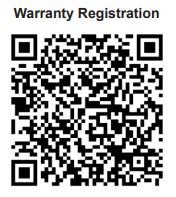
FREQUENCY TABLE TABLA DE FRECUENCIAS TABLEAU DES FRÉQUENCES TABELA DAS FREQUÊNCIAS
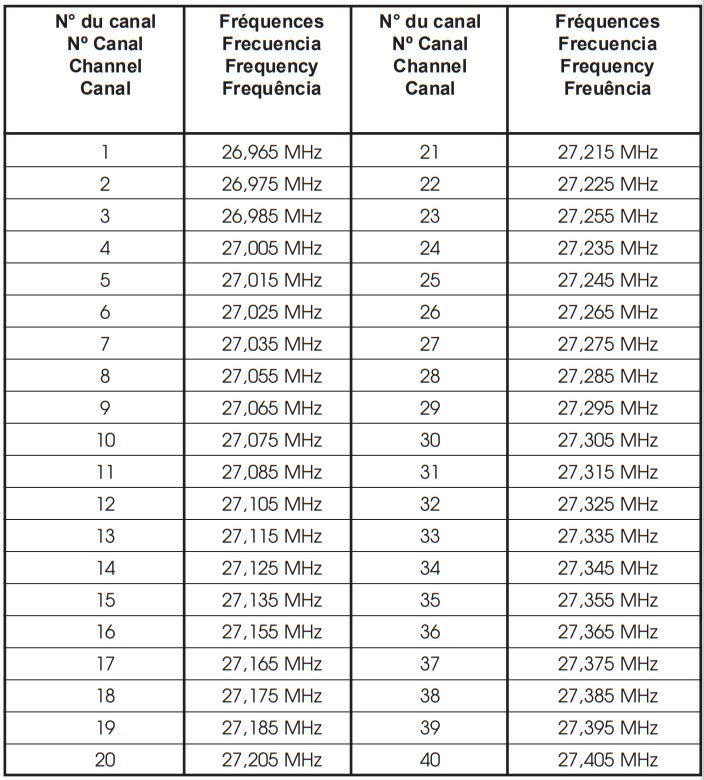
6-PIN MICROPHONE PLUG CONEXIÓN DEL MICRO 6 PINS PRISE MICRO 6 BROCHES TOMADA MICROFONE 6 PINOS
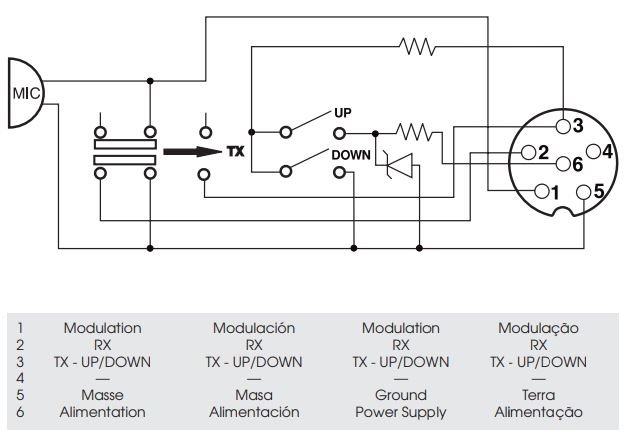
IC RSS-GEN, Sec 7.1.2 Warning Statement – (Required for Transmitters)
Under Industry Canada regulations, this radio transmitter may only operate using an antenna of a type and maximum (or lesser) gain approved for the transmitter by Industry Canada. To reduce potential radio interference to other users, the antenna type and its gain should be so chosen that the equivalent isotropically radiated power (e.i.r.p.) is not more than that necessary for successful communication.
IC RSS-GEN, Sec 7.1.2 Warning Statement – (Required for Transmitters w/ detachable antennas)
This radio transmitter has been approved by Industry Canada to operate with the antenna types listed below with the maximum permissible gain and required antenna impedance for each antenna type indicated. Antenna types not included in this list, having a gain greater than the maximum gain indicated for that type, are strictly prohibited for use with this device.
RF Exposure Warning Statements (FCC/ISED)
The antenna used for this radio must be properly installed and maintained and must provide a separation distance of at least 21 inches (53 cm) from all persons and must not be collocated or operated in conjunction with any other antenna or transmitter. Never transmit if any person is closer than the specified distance to the antenna.
Note that PRESIDENT does not specify or supply any antenna with this transceiver. While a 0 dBi gain antenna is normal for a typical installation, the above limit applies to any antenna with up to 3 dBi gain.
IC RSS-GEN, Sec 8.4 / RSP-100, Sec 8.4
This device complies with Industry Canada’s license-exempt RSSs. Operation is subject to the following two conditions: (1) This device may not cause interference; and (2) This device must accept any interference, including interference that may cause undesired operation of the device.
Part 15 FCC
This device complies with part 15 of the FCC Rules. Operation is subject to the following two conditions: (1) This device may not cause harmful interference, and (2) this device must accept any interference received, including interference that may cause undesired operation.
Part 15.21 FCC
Changes or modifications not expressly approved by the party responsible for compliance could void the user’s authority to operate the equipment.
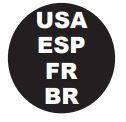


HEAD OFFICE/SIÈGE SOCIAL: USA – 1007 Collier Center Way, Naples, Florida 34110
Web: http://www.president-electronics.us • Phone: +1 239.302.3100
Email: [email protected]
Download Manual PDF
PRESIDENT TXUS093 Thomas FCC AM/FM CB
Radio User Manual PDF Download
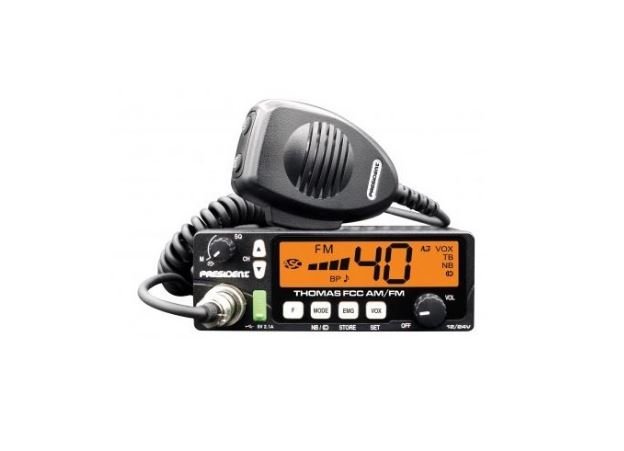
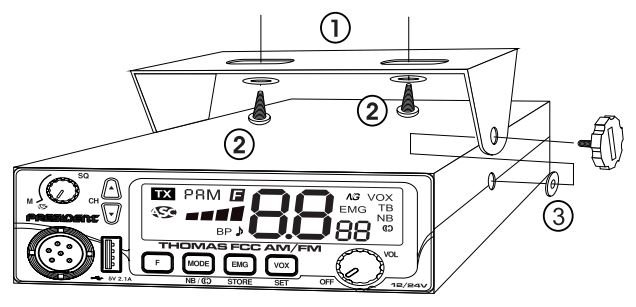
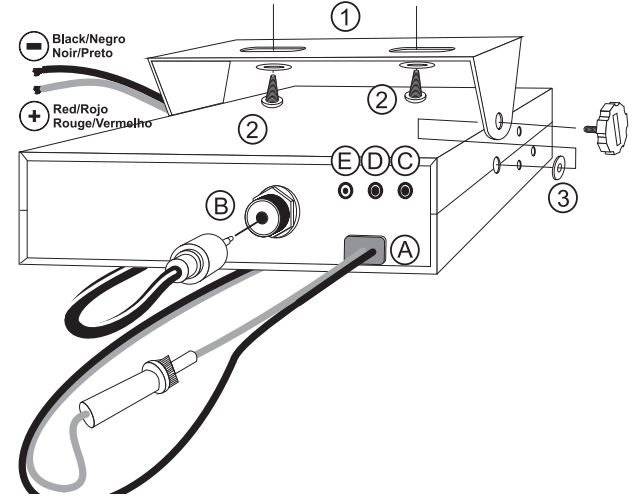
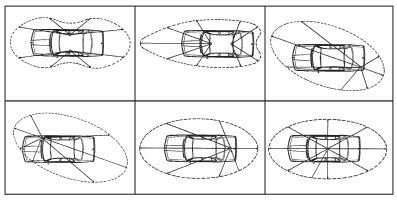 OUTPUT RADIUS PATTERN
OUTPUT RADIUS PATTERN